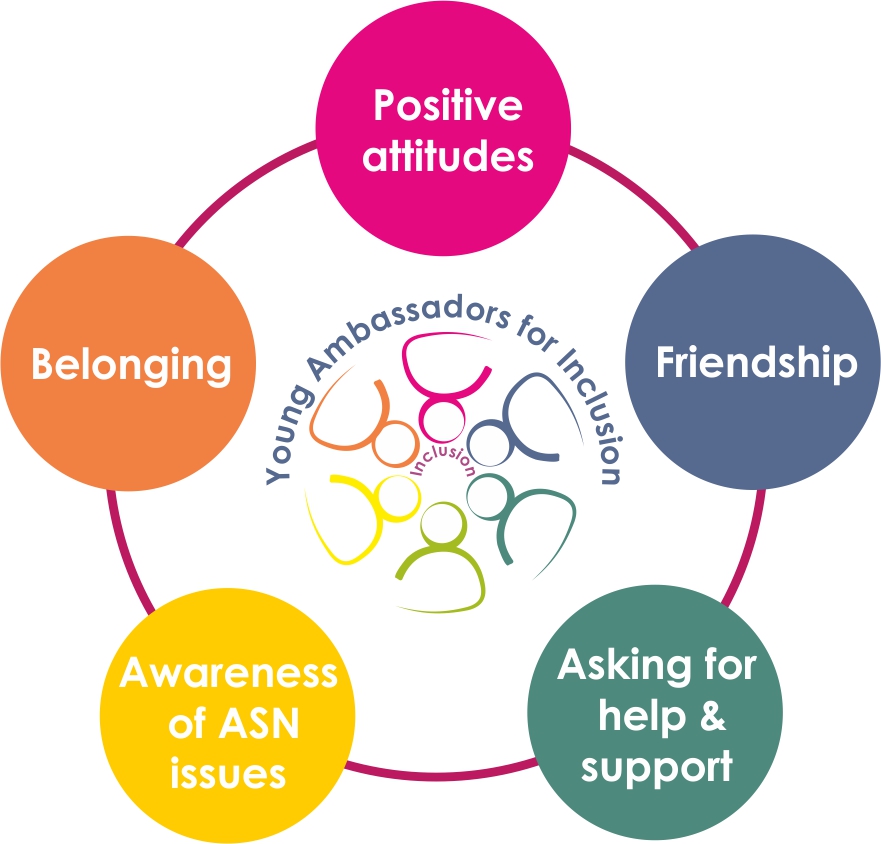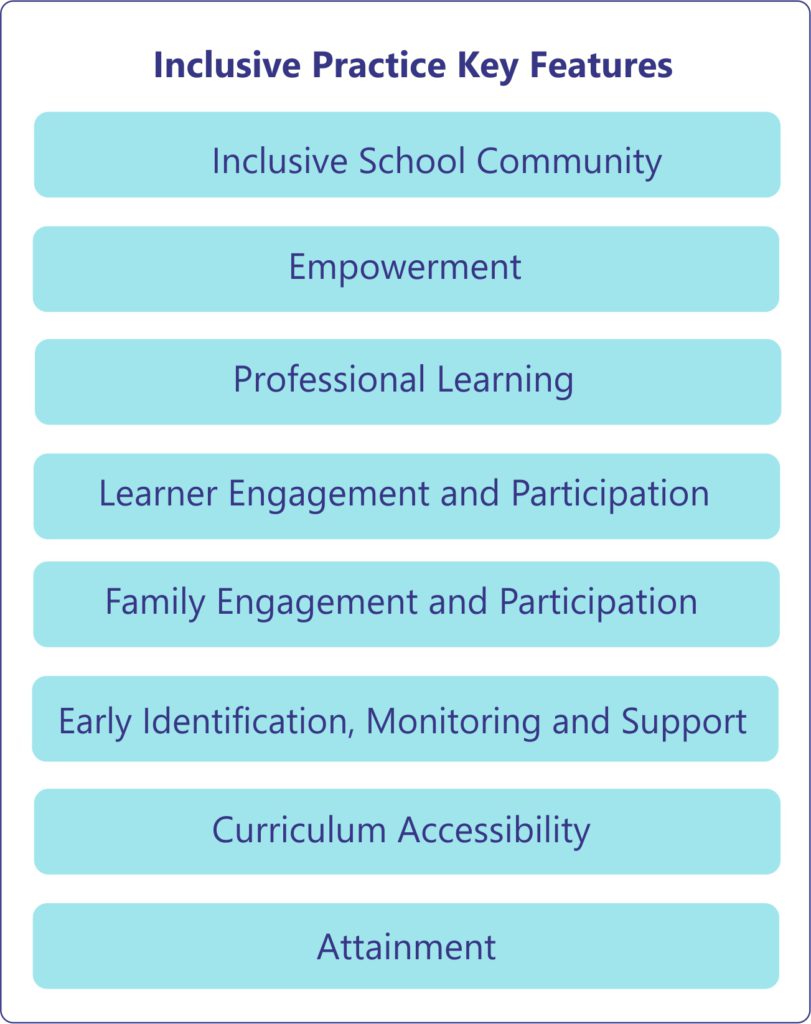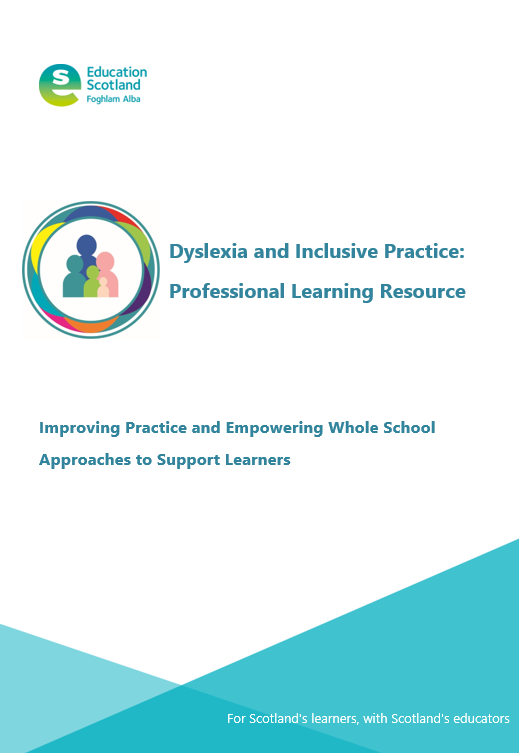Inclusive Education
What does Inclusive education mean?
Inclusive education means that the needs of all children, including those who require additional support, are included in the:
- Planning and provision of the school curriculum (whole life of the school)
- Learning and teaching resources and approaches
Inclusive education in Scotland aims to eliminate social exclusion that is a consequence of attitudes to diversity in race, social class, ethnicity, religion, gender and ability. It starts from the belief that education is a human right and the foundation of a more just society. An inclusive approach, with an appreciation of diversity and an ambition for all to achieve their full potential, is essential to getting it right for every child and raising attainment for all.
The core principles of our inclusive approach in Scotland focuses on:
- being present
- attending school
- participating – involved in all aspects of school life
- achieving the best they possibly can
These principles can be used as a means of seeing if inclusion has been successful.
The Young Ambassadors for Inclusion share their views on what inclusion means to them.
“Just not being someone on the outside looking in and be able to have the same opportunity and education”
Young Ambassadors for Inclusion 2017
The Young Ambassadors for Inclusion are young people with additional support needs who have been nominated by their local authority to join a network which provides an opportunity for them to share their views and experiences of Scottish education. A total of 26 local authorities have been represented since the network began.
Through discussion and activities, the Young Ambassadors have identified the ways they feel schools are doing well in their provision of inclusive education and also where improvements could be made.
The graphic below highlights 5 areas the Young Ambassadors for Inclusion feel support inclusion.
For further information on the Young Ambassadors for Inclusion and professional learning resources select here.

Improving inclusive education to support all learners , including those with dyslexia.
Through the Making Sense Programme schools and local authorities identified eight key areas which they feel are essential to sustainable improvement across the school community. Critical to successfully taking forward improvements in all areas is a requirement to focus on supporting the school community to develop an understanding of dyslexia and what inclusive practice means, the impact it can have on experiences and outcomes and the attainment of all learners.

Dyslexia and Inclusive Practice: Professional Learning Resource
This resource has been collaboratively developed to improve practice and empower whole school approaches to support learners within an inclusive learning community.
The 8 key focus areas form the framework of the resource which aims to support schools and local authorities to:
- improve the quality of educational outcomes for learners with dyslexia through collaborative enquiry and effective self-evaluation
- evidence the impact of the collaborative enquiry through evidenced based improvements
- fulfil statutory duties
- support professional learning on inclusive practice
- further develop inclusive practice for all learners within the school community
- build on partnerships within the Regional Improvement Collaboratives (RICs), developing opportunities to share practice and reduce duplication of resource development.
This professional learning resource explores the key features of Inclusive Practice through a reflective and evaluative approach and includes:
- guidance and information on each key feature
- reflective questions and suggestions to support this process
- examples of evaluative enquiries using improvement methodology.

Select ‘here’ to download a copy of the professional learning resource.
Select here to download a Developing Inclusive School Community Improvement Exemplar
Further information on the resource can be found on the Education Scotland National Improvement Hub
